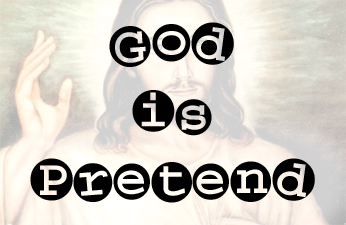Mr. X over at Why I Hate Jesus made a stunning observation. To paraphrase it would do it injustice, so I present it to you in its entirety.
If you were god for a day, what would you do with this power? Maybe you would cure cancer? Invoke your power to create world peace? Create enough resources for all so that people don’t die of starvation and malnutrition? Create a world where we can all live without killing it through polluting fossil fuels? Maybe you would show yourself to everyone so that we could all believe and all could be saved? Or, better yet, abolish hell altogether? These are just some of the potential things that you could do with this power.
So, the question is: why hasn’t god done any of these things?
So, Christians, what’ll it be this time? A defense of god’s inaction based on free will? A defense based on the prevention of dependence? I’m all ears.
